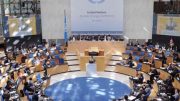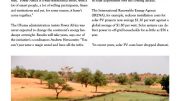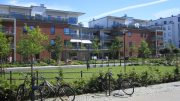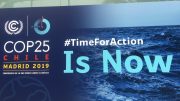 A new step to promote the Clean Development Mechanism (CDM) in the Asia-Pacific Region. The further boost comes with the establishment of a centre in Bangkok, Thailand, which will be operated in partnership with the Institute for Global Environmental Strategies (IGES) and will support all countries in the region in identifying and designing CDM projects and offering opportunities to reduce transaction costs. It will work in collaboration with the other Regional Collaboration Centres (RCCs) in Africa, Latin America and the Caribbean.
A new step to promote the Clean Development Mechanism (CDM) in the Asia-Pacific Region. The further boost comes with the establishment of a centre in Bangkok, Thailand, which will be operated in partnership with the Institute for Global Environmental Strategies (IGES) and will support all countries in the region in identifying and designing CDM projects and offering opportunities to reduce transaction costs. It will work in collaboration with the other Regional Collaboration Centres (RCCs) in Africa, Latin America and the Caribbean.
Welcoming the establishment of the centre in Bangkok, just months before the UN Climate Change Conference in Paris, Christiana Figueres, Executive Secretary of the United Nations Framework Convention on Climate Change (UNFCCC) said: “A CDM hub in Asia-Pacific comes as nations are set to ink a new universal climate agreement in Paris in December. The agreement needs to trigger an ever deeper transition to a low carbon economy and by the second half of the century a climate neutral world—scaled up finance, innovative technologies and creative market mechanisms that benefit people and the planet will be central to these aims.”
This is the fifth CDM RCC established by the UNFCCC in partnership with a regional organization. The first centre was established in January 2013 in Lomé, Togo to increase participation in CDM projects in West and Francophone Africa. A second centre was established in Kampala, Uganda to serve the rest of Africa. A third was established in Saint George’s, Grenada to assist in the development of CDM projects in the Caribbean, and a fourth was set up in Bogotá, Colombia to support underrepresented countries in Latin America. The Asia-Pacific RCC will be hosted in the IGES offices in Bangkok and will become operational on 1 September 2015.
Professor Hironori Hamanaka, Chair of the Board of Directors of IGES, praised the inter-agency cooperation as an important step towards attaining the goals set by the international community to combat climate change. He said: “We are honored to work in partnership with the UNFCCC in Asia and the Pacific, and this Regional Collaboration Centre in Bangkok will further tap the potential for CDM projects in the region.”
The CDM allows emission-reduction projects in developing countries to earn certified emission reductions (CERs), each equivalent to one tonne of CO2. CERs can be traded and sold, and used by industrialized countries to meet a part of their emission reduction targets under the Kyoto Protocol. ONE





